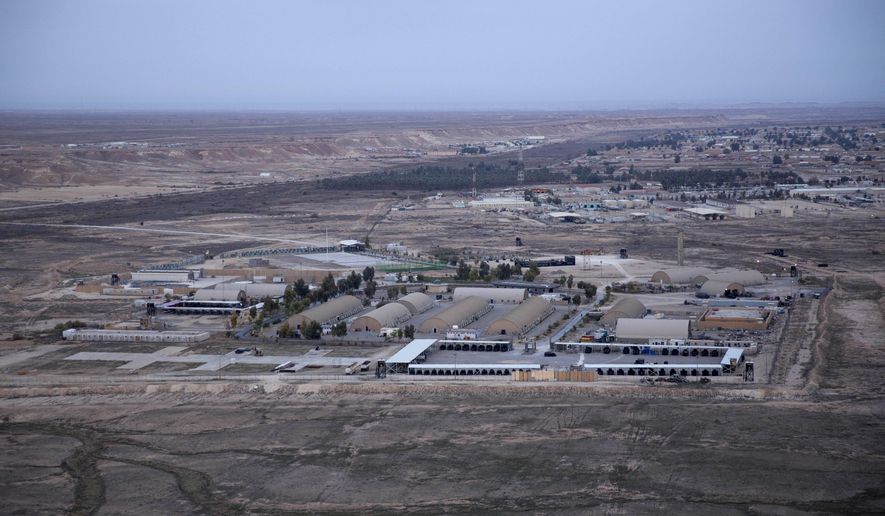Eight military members arrived Friday in the United States for further medical treatment following the Jan. 8 Iranian ballistic missile attack on the Al Asad Air Base in Iraq.
They are among 34 U.S. service members who sustained traumatic brain injuries after Tehran fired more than a dozen missiles in retaliation for the U.S. strike that killed Iranian Gen. Qassem Soleimani.
“They will continue to receive treatment in the United States either at Walter Reed [National Military Medical Center] or their home bases,” said Pentagon chief spokesman Jonathan Hoffman.
He said nine service members remain hospitalized in Germany and are continuing to be evaluated and treated there. Pentagon officials said one who was treated in Kuwait and 16 who were diagnosed in Iraq have already returned to duty.
The injured service members who were flown back to the United States are being treated on an outpatient basis, Mr. Hoffman said.
Pentagon officials initially said there were no injuries as a result of the Iranian missile strike. But within a week, they revealed that 11 service members had been treated for symptoms of concussion.
“A lot of these symptoms are late-developing. They manifest over a period of time,” Mr. Hoffman said.
That there initially seemed to have been no injuries from the missile barrage seemed to have been a factor in the relatively muted response from the White House immediately following the attack. In the past, President Trump has shown more willingness to strike back if an incident resulted in American casualties.
The drone strike that killed the influential Soleimani was authorized after a Dec. 27 attack by Iranian-sponsored militia members in Iraq that killed an American defense contractor.
On Friday, Secretary of Defense Mark Esper directed the Pentagon to review how the military tracks and reports injuries and casualties. The goal, Mr. Hoffman said, is to be as transparent and accurate as possible.
“We will have an update of this review in the future,” he said.
While Pentagon officials said they are taking seriously the concussions sustained by the service members, Mr. Trump earlier this week seemed to downplay the injuries.
“I heard that they had headaches and a couple of other things but I would say, and I can report, it is not very serious,” the president said Wednesday during a press conference at the Davos World Economic Forum in Switzerland.
• Ben Wolfgang contributed to this story.
• Mike Glenn can be reached at mglenn@washingtontimes.com.




Please read our comment policy before commenting.